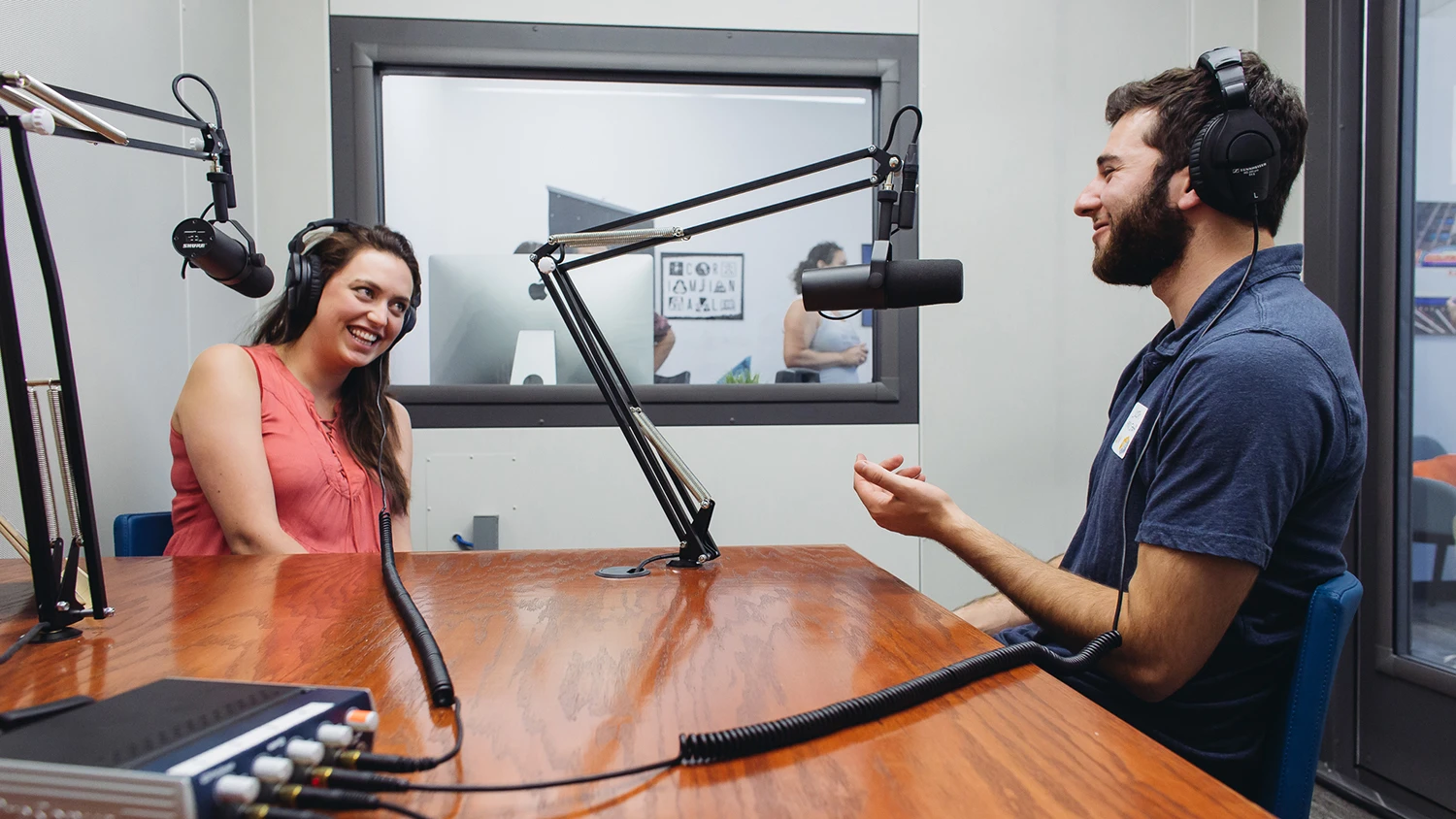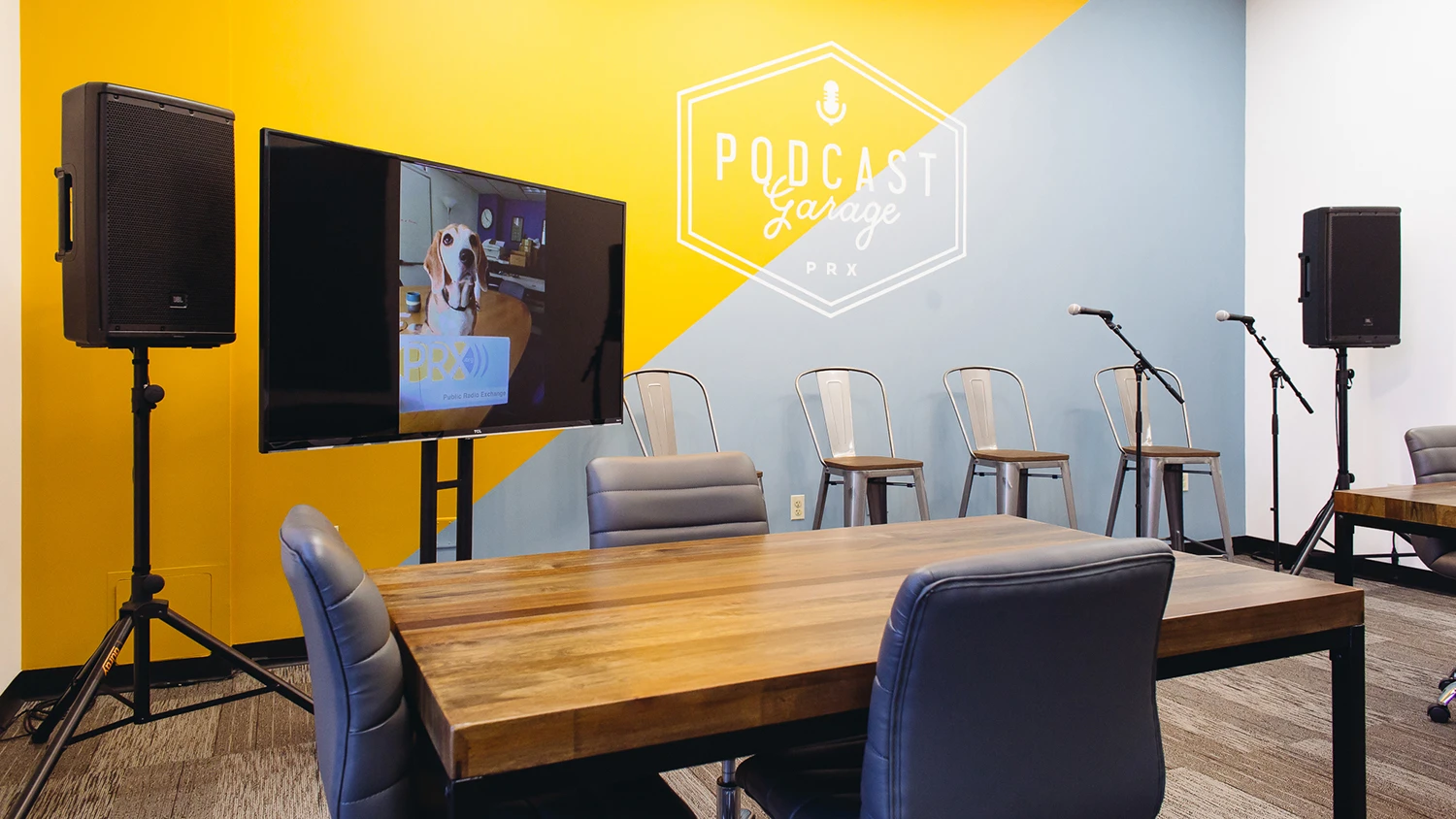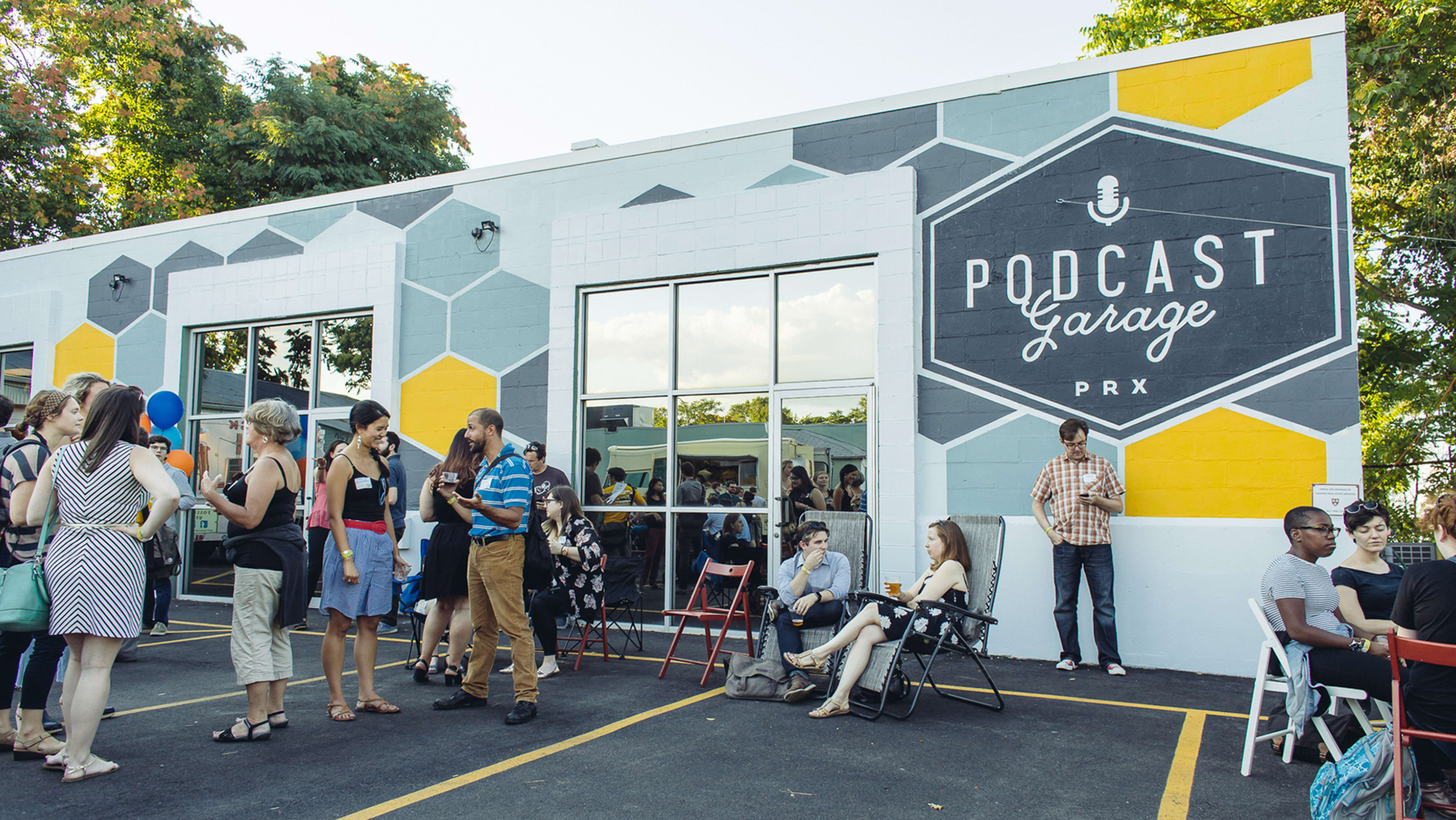When PRX set up shop on Western Avenue in Boston as part of a Harvard initiative called Zone 3, the public media nonprofit wasn’t sure what would come of it. Harvard had asked if PRX might create a pop-up listening experience. PRX countered with a proposal for a low-cost, community-based podcast incubator and studio space, which they christened the Podcast Garage—named for its Silicon Valley-esque origins in an actual garage.
The hope was to create a facility that would help lower the barriers to entry for podcasting and teach people how to do it successfully, and so far it’s working: Since opening its doors last August, the Podcast Garage has given rise to 17 new podcasts. At $35 for a monthly membership, the space is within reach for newcomers looking to dabble in podcasting as well as more seasoned podcasters seeking studio space.
Kerri Hoffman, PRX’s CEO, says it’s been attracting an eclectic mix of both. “We actually have a pretty good pulse on the audio community, but some of these people were new to us,” she tells Fast Company.

“There’s a tagline PRX used in the early days of the organization where we used to say that ‘PRX was making public radio more public,’ Hoffman says. “I actually think that podcasting is that low barrier.”
That’s true: Podcasting as a form of storytelling is already democratized. You can start a podcast if you have the time and resources. But a return on that investment—cultivating an audience, inking the right sponsorships, and turning a podcast into a money-making venture—is a much tougher proposition.
Downloads to Dollars
As with other media platforms, making money from podcasts requires marketing and financial know-how that a fledgling producer won’t necessarily have. Popular political podcasts like Pod Save America and Slate Political Gabfest reportedly bring in upwards of $1 million in annual revenue because each episode draws hundreds of thousands of downloads.
“It’s really hard to make money on a podcast that’s smaller than, let’s say, 50,000 downloads,” Hoffman says. “It just is. The math just doesn’t work out and it’s not worth it, quite frankly. So question number one is: How do you shorten the ramp?”

The space has also become something of a creative hub even beyond audio production. “It’s attracting painters and photographers who want their stuff on the wall,” Hoffman says. “We do art installations on a six-week rotation, so it’s a great space for that. We even did a potluck of independent filmmakers and audio producers for a listen-and-see kind of event.”
Diversity Follows Access
Audio can be intimate and anonymous all at once; it can also be deeply personal and subjective, as shrewd listeners of S Town might tell you. For those reasons, it’s imperative that the medium to embrace voices—and topics—that might otherwise go unheard. (Podcasts like WNYC’s Nancy, The Read, Politically Re-Active, Still Processing, and Another Round are already doing exactly that.) I asked Hoffman how an initiative like the Podcast Garage was poised to chip away at the barriers to entry that remain in podcasting—which, like radio, skewed very white and male until recently.
“One of the reasons why you get a lot of white educated people making podcasts is because it’s a hobbyist’s game,” Hoffman says. “When I’m really wrestling with this in my head, I think, ‘How do we actually change the employment model here?’ . . . Part of the way we do that is [through] a facility that’s low cost, so people can experiment.”
The Podcast Garage already offers scholarships for its workshops, something Hoffman wants to continue in its expansion, along with introducing a fellowship and artist-in-residence program. (She also notes that PRX’s own podcast network, Radiotopia, is run by an all-female team and has sought out women hosts.) Eventually, she also hopes to create an apprenticeship of sorts, so people can get paid while they acquire training at the Podcast Garage.
“Audio studios are in basements and hidden, or they’re expensive because they’re in engineer-based studios,” Hoffman says. “We’re trying to make it lightweight and open, and it fits PRX’s mission of: What do we want the next generation of makers and listeners to be? Because it should really reflect the public.”
Kerri Hoffman will be hosting a workshop next month on how—and when—to launch a podcast at Fast Company’s Innovation Festival , Oct 23-27. You can learn more info here.
Recognize your brand’s excellence by applying to this year’s Brands That Matter Awards before the early-rate deadline, May 3.
